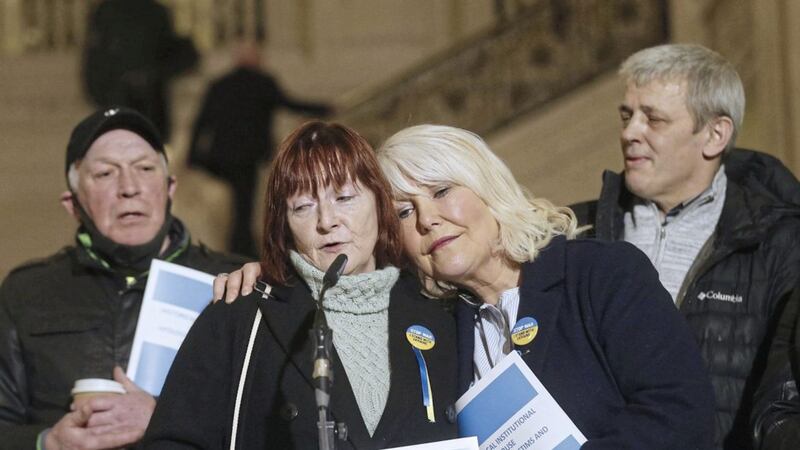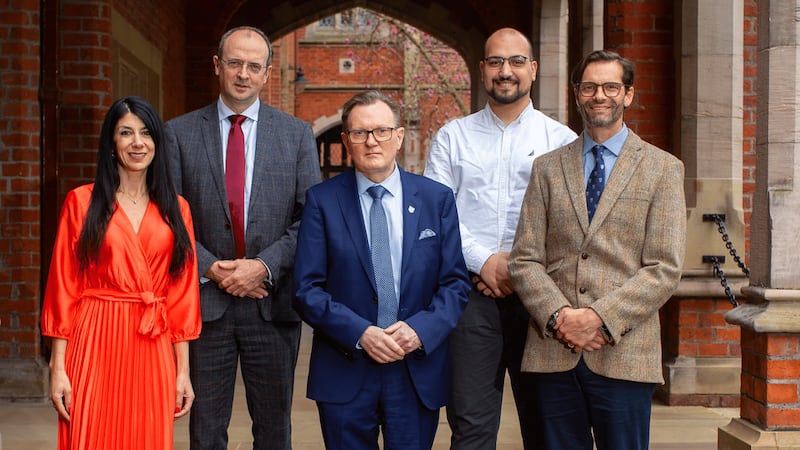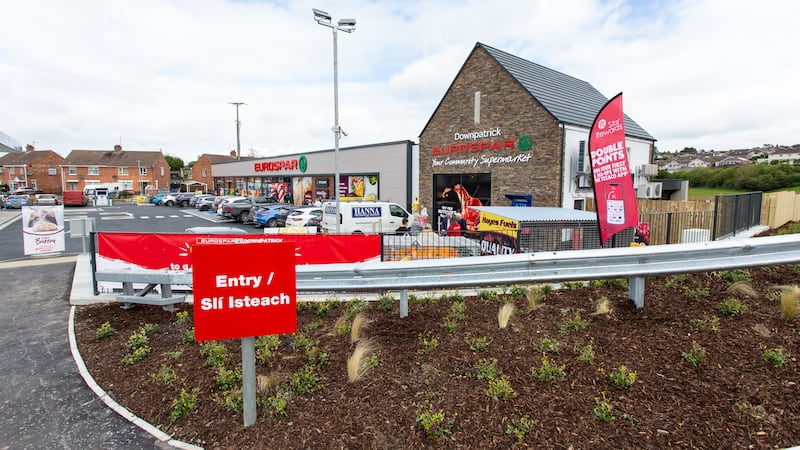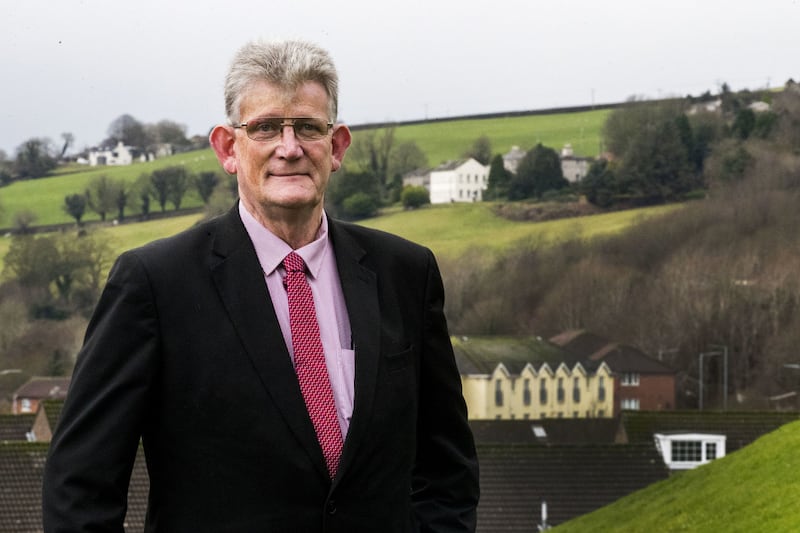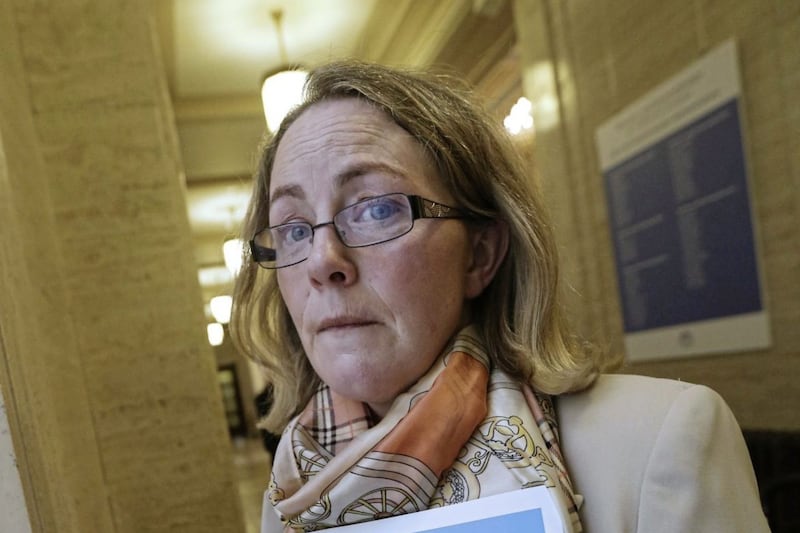RELIGIOUS orders who ran institutions in Northern Ireland where children were abused were not sincere in their apologies, victims' campaigners have said.
Margaret McGuckin, of Survivors and Victims of Institutional Abuse (Savia), said although she was pleased apologies were delivered at Stormont yesterday on behalf of the state, religious orders, Irish Church Missions and Barnardo's, she felt the orders had failed.
She pointed out that the orders still had not made contributions to a compensation scheme for victims, two years after it was set up.
"They were forced to apologise because they were forced to come here today," she told The Irish News.
"They were humiliated into doing so. I'd take their apologies with a pinch of salt."
Ms McGuckin said survivors had endured a long battle for justice.
"It means the end of an era," she said.
"It's the end of always pushing to get the legislation through, to get the redress, to get the services through and now an apology.
"This apology was only delivered because of our long and hard campaign."
Jon McCourt, of Survivors North West, said he felt representatives of the institutions "failed miserably".
"The way they can put it right is to do what the religious orders have just done in Scotland and make a significant contribution immediately to the redress fund," he said.
Solicitor Claire McKeegan, of Phoenix Law, who has been working with Savia since 2010, said an apology only happened thanks to the courage of victims.
"Every single element that was promised to the survivors has been fought for and won, not given," she said.
Catholic primate, Archbishop Eamon Martin, yesterday repeated his "unreserved apology" to victims and their loved ones.
He said yesterday was a day of "mixed emotions", adding that victims' reactions to the apologies "must be heard and respected".
While he did not specifically call on the orders involved to contribute to the redress scheme, he said the church must "do everything we can to demonstrate that we are serious about making reparation for the sins and crimes of the past".
Earlier, Ministers Michelle McIlveen, Conor Murphy, Nichola Mallon, Robin Swann and Naomi Long offered an apology in the assembly chamber on behalf of the executive.
Apologies were also made by the institutions criticised by the landmark 2017 Historical Institutional Abuse (HIA) inquiry report for systemic failings.
They were: De La Salle Order, Sisters of Nazareth, Good Shepherd Sisters, Sisters of St Louis, Barnardo’s and Irish Church Missions - which has links with the Church of Ireland.
Sinn Féin finance minister Conor Murphy highlighted that survivors had waited too long for an apology - more than five years since the HIA report.
"We acknowledge that the delay in progressing this recommendation from the Hart report has further added to the stress that you experienced," he said.
SDLP infrastructure minister Nichola Mallon said no apology to victims could make up for the failings of the past.
"The guilt and shame of what happened is not, nor has it ever been, your burden to bear," she said.
Br Francis Manning, from De La Salle, specifically acknowledged failings at Rubane and St Patrick's Training School.
He said children in the order's care were "subjected to physical and sexual abuse, and to excessive physical punishment".
He added: "For our part, we wish to say we are sorry and wish to offer our sincere apology."
Sr Cornelia Walsh, from the Sisters of Nazareth, offered a "heartfelt apology" to victims.
"When you sought our help to prevent physical or sexual abuse, we did not believe you," she said.
"There are no acceptable excuses. We are sorry."
Uainin Clarke, from Sisters of St Louis, accepted that a "harsh regime" existed in St Joseph's Training School, Middletown.
"To those of you who suffered at any time while at St Joseph's and are still carrying that pain, we say we are especially sorry that when you were a child or a teenager, you did not always feel safe or believed while at St Joseph's," she said.
Cait O'Leary, from the Good Shepherd Sisters, acknowledged that "mistakes were made in the care provided to girls and young women", including that people's names were changed on admission.
"In one of our institutions, there was a practice of reading out misdemeanours and humiliating you in front of others," she said.
"We unreservedly accept that this amounted to emotional abuse and deeply regret that you experienced this practice."
She said it was "not acceptable" that women and girls had to carry out work, frequently laundry work, in Good Shepherd Sisters' institutions.
Michele Janes, of Barnardo's, said the organisation had listened to victims' stories.
"We acknowledge that the organisational failures at the time led to the abuse as a child you experienced living with us," she said.
Reverend Mark Jones, representing the Irish Church Missions which ran Manor House Home in Lisburn, apologised to victims of sexual abuse.
"We recognise that such violations robbed you of your childhood and that you continue to live with the consequences to this day," he said.
He apologised for the "treatment of bed-wetters in the 1940s, co-operating in the sending of boys to Australia in November 1950 under the Child Migrants Scheme and the poor condition of the home in the 1950s".
The Commissioner for Victims and Survivors of Institutional Childhood Abuse, Fiona Ryan, acknowledged the pain and suffering of survivors.
"We are talking about the systemic abuse, sexual abuse, emotional abuse and neglect of children for decades in residential institutions in Northern Ireland," she said.
"For this abuse to succeed on this scale requires not only individual abusers and institutions to perpetrate the abuse, but failed oversight and accountability on the part of the public authorities."
